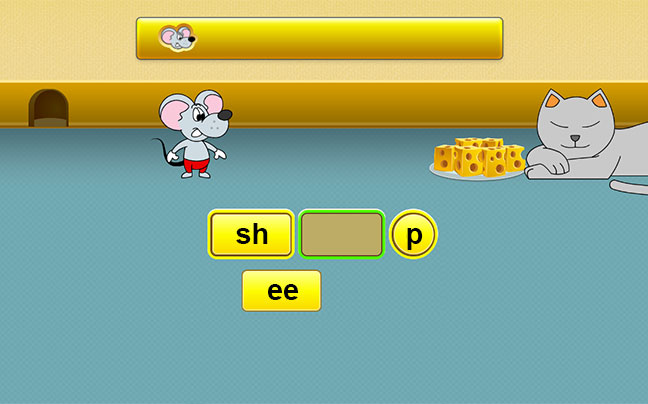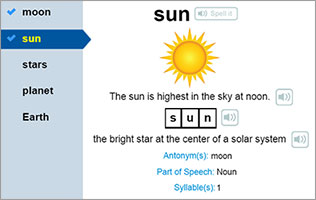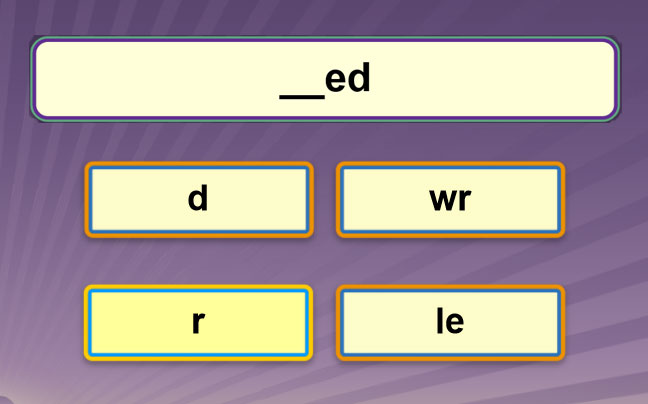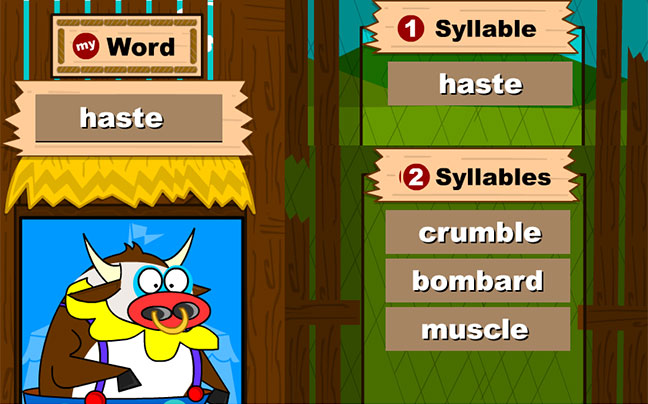Phonics Games Build Literacy Skills
Learning to read and write fluently requires mastery of phonological awareness and phonics skills. Having automaticity in word recognition allows readers to concentrate on comprehension and allows writers to express their ideas.
Why are these skills important?
Building early literacy skills begins with phonological awareness, the key element in learning phonics. Once they can begin to understand phonics, the system of sound and letter correspondence, beginning readers can accurately decode words and writers can spell them. Word recognition also includes the automaticity of word meaning. Developing good spelling and vocabulary skills is essential for effective written communication as well. Vocabulary development also promotes fluency by building background knowledge and concepts necessary for reading comprehension. Developing these skills over time achieves the ultimate goal of reading and writing fluency.
Phonics & Phonological Awareness
Games for Premium Members
VocabularySpellingCity’s word study activities help students practice important foundational skills, with the added flexibility of using any word list.
- Word Building & Word Recognition
- Sound-Spelling Correspondences
- Vocabulary Development
- Multisyllabic Words
Sound It Out! lets beginning readers practice phoneme (letter sound) and grapheme (sound spelling) relationships by clicking the sound blocks in the right order to spell a word correctly. Students can choose from two game themes.
Which Initial Sound? and Which Final Sound? use sounds and images to build the early literacy skill of Phonological Awareness, helping students recognize sounds that make up words.
WordStudy gives students the opportunity to see an image of the word and hear the letter sounds. They can also explore spelling, syllables, parts of speech, syllables, synonyms, antonyms and the words read in context.
Initial Sound Speller and Final Sound Speller provide practice recognizing sounds/spelling correspondences. Practice of these basic phonics skills prepare students for blending words orally and in writing.
SillyBulls (i.e. Syllables) gives students practice identifying the number of syllables in a word, a key step in word decoding.

 Account
Account
 Search
Search
 Help
Help



